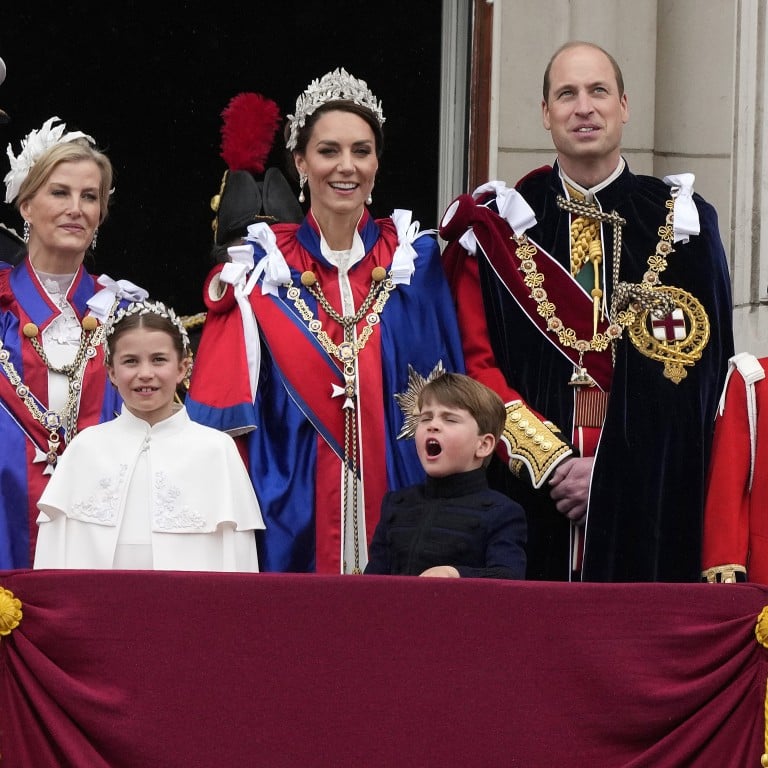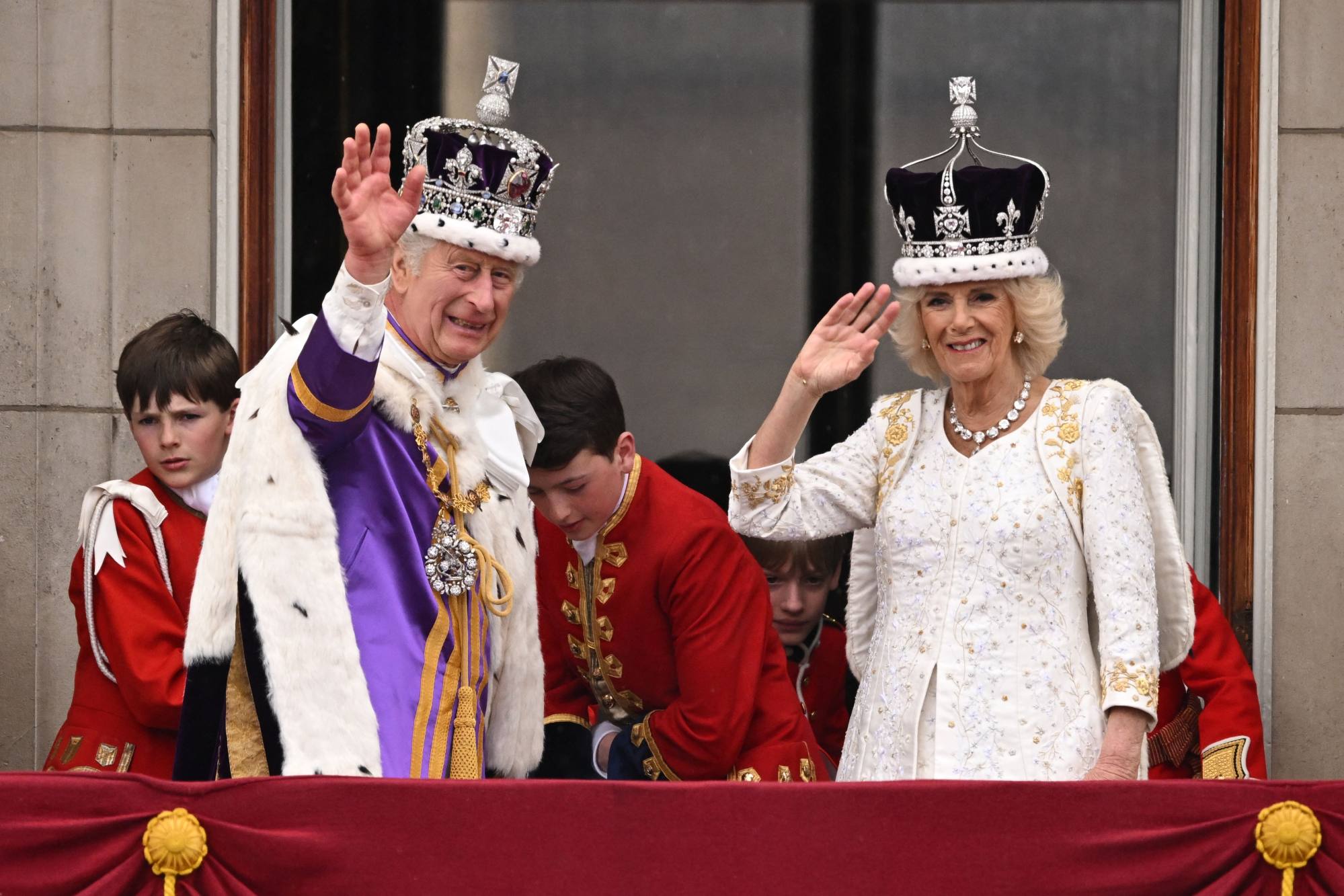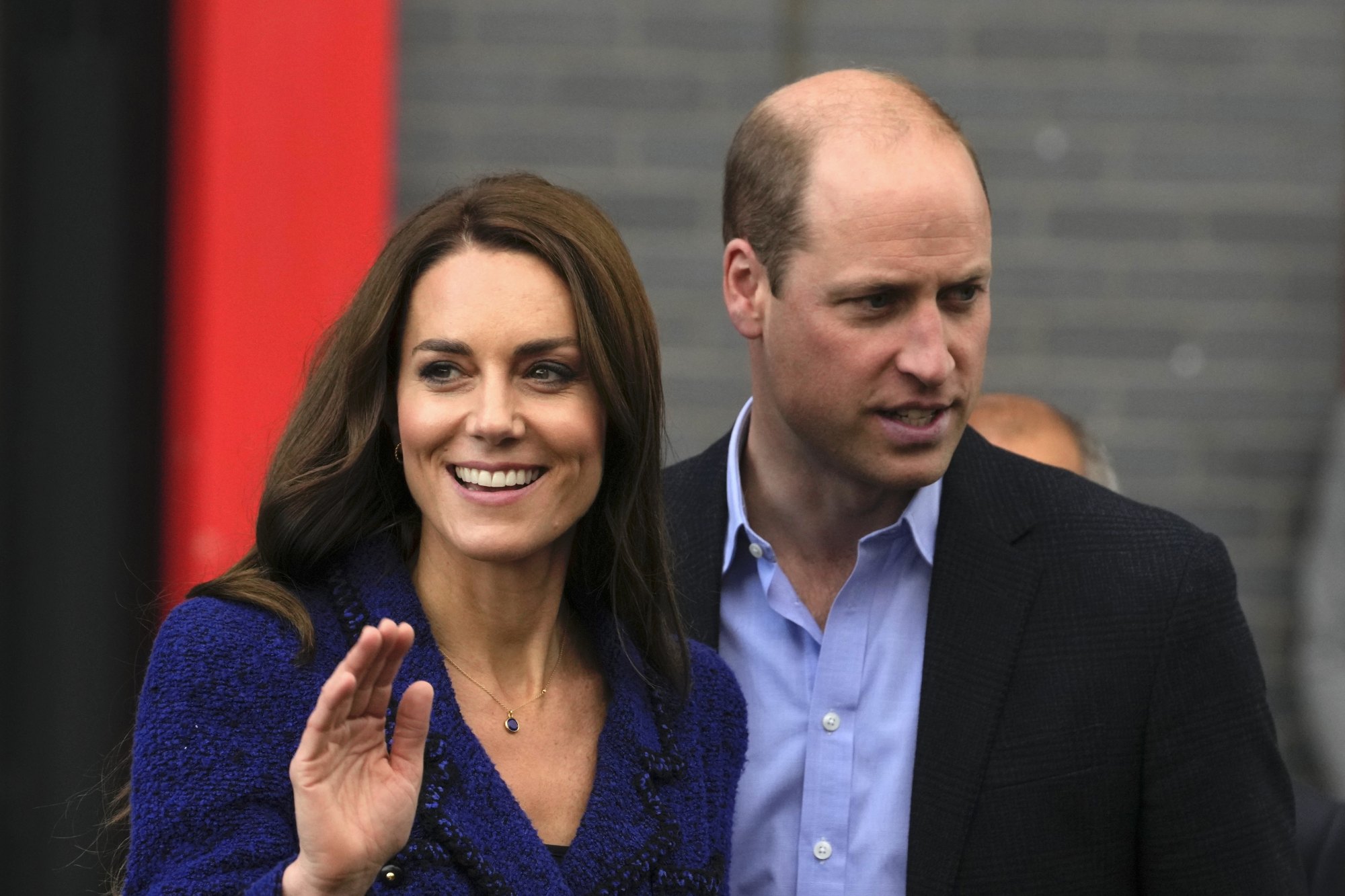Could William and Kate follow in Meghan and Harry’s footsteps? With royal support at an all-time low among Gen Z after King Charles’ coronation, here’s what would happen if the monarchy was abolished

King Charles’ coronation was watched with mixed emotions by royal fans and antimonarchy protesters alike – but recent polls suggest that interest in the royal family is declining. And, if the monarchy were to be abolished, the royal family could follow Harry and Meghan’s example.

But not everyone was overjoyed by the celebrations. Among the crowds watching the coronation procession were antimonarchy protesters who held signs that read “Not my king” and “This country is ours”.

Recent figures suggest there is less public support for the monarchy than in previous years, particularly among young people. Just under 40 per cent of UK citizens between the ages of 18 and 24 would prefer an elected head of state rather than a monarch, according to an April 2023 YouGov poll of 4,592 adults for the BBC’s Panorama current affairs programme.

While the overall results showed support for the monarchy, with 58 per cent of all people polled preferring the institution to an elected head of state, the support among Gen Z remained significantly lower, with just 32 per cent of people aged between 18 and 24 saying they support the monarchy, according to YouGov.
Meanwhile, the live coronation broadcast was watched by far fewer people than Queen Elizabeth’s funeral. BBC News stats show the coronation was watched by an average of 18.8 million people in the UK compared to 26.5 million people who watched the funeral service in September.
Tiwa Adebayo, a journalist and royal commentator, told Good Morning Britain that the coronation was likely “the last thing on a lot of people’s minds” due to the cost of living crisis in the UK. She added that recent polls suggest there is a “crisis of indifference” toward the royals.

That poses the question: what would happen if the UK abolished the monarchy?
While some countries, including Greece and Bulgaria, abolished their monarchies through public referendum, royal commentator Marlene Koenig said the process is more complex than people think.
“It would take legislation, an act of parliament, and signed by the sovereign to end the monarchy,” said Koenig, a royal expert for History Extra.
Nonetheless, that’s not to say things couldn’t one day change if there were to be a greater call for Britain to consider the future of the monarchy.
The king would give up Buckingham Palace – but he wouldn’t have to give up all of his royal residences

Buckingham Palace has been used as the official working and living headquarters of Britain’s monarchs since 1837. It has 775 rooms (many of these are for private use) and is used by the king to host state banquets and engagements with world leaders and government officials.
It’s also a prime location for many milestone events, including royal wedding receptions, and, soon, the king’s Trooping the Colour birthday parade each year.
In previous years, the palace opened to visitors in the summer while the late Queen Elizabeth vacationed at her Scottish holiday home, Balmoral Castle. However, it could become a permanent tourist attraction if the king were to officially move out.

“The Crown Estate is not the private property of the king. Our assets are hereditary possessions of the sovereign held ‘in right of the crown’. This means they belong to the sovereign for the duration of their reign, but cannot be sold by them, nor do revenues from the assets belong to them,” states the estate’s website.
Other residences that are crown-owned include Windsor Castle (the royal Easter residence), and the Palace of Holyroodhouse (the Edinburgh residence).

The monarch also privately owns Balmoral Castle in the Scottish Highlands and the Sandringham Estate in Norfolk, where the royals spend every Christmas and New Year. Therefore, it’s likely one of these could be chosen as a new permanent residence if the monarchy was abolished.
This isn’t an unusual circumstance for royal families from abolished monarchies, according to Koenig. “Most of the former German royal families stayed in their homes,” she said. “Some property was confiscated, others received compensation, including the Kaiser’s family.”
Prince William and Kate would follow Prince Harry and Meghan’s lead and pursue financial independence

At the age of 74, it’s possible that Charles would retire from public life if the monarchy was abolished.
It’s more likely that the younger generation of royals, such as Kate Middleton and Prince William, would follow Prince Harry and Meghan Markle’s lead and try to shape their own careers.

Meanwhile, Harry released his debut memoir, Spare, in January 2023. The book was a major success, and sold 1.4 million copies on the first day of release, making it Penguin Random House’s fastest-selling non-fiction book of all time.

Of course, it’s a matter of speculation as to whether Kate and William would take on similar work to Harry and Meghan if they were forced to pursue private careers.
They do have similar skill sets to the Sussexes. They currently run their own charity, The Royal Foundation, where they often give speeches at charity dinners and events. And in October 2021, Prince William teamed up with David Attenborough for a five-part documentary series about the environmental challenges facing our planet which aired on BBC One in the UK and Discovery in the US.
But how likely is the monarchy will be abolished, really?

All that being said, it’s worth remembering that royal experts say the likelihood of the monarchy being abolished is pretty low.

“The monarchy as an institution is all about the monarch and [their] direct heirs,” royal editor Robert Jobson said. “The Sussexes are popular, but their involvement in matters of state are negligible.”
Koenig echoed Jobson’s comments. “The only members of the royal family that have a constitutional role are the sovereign and the heir apparent,” she said.
Meanwhile, royal commentator Victoria Arbiter said that polls about the royal family should be taken “with a pinch of salt” and that it’s worth remembering that many people still support the monarchy. “Always before a big royal event, the polls say nobody cares. But on the day, millions of people show up,” Arbiter said.

“When you look back, historically, the younger generation is always a bit less enchanted with the royal family and this changes with age as they see the benefit of a politically neutral head of state. It’s nothing new. It doesn’t mean the royal family can rest on their laurels, but the response the royals receive at engagements speaks more than a poll,” she added.
Charles and Camilla were greeted by thousands of people on the streets of central London as they made their procession from Westminster Abbey to Buckingham Palace on Saturday. Many people camped overnight in dreary weather to secure their place on the procession route, reported Sky News.
Although Charles has encountered protesters, he has also received encouraging words of support from the public at engagements since he ascended the throne. At his first appearance outside Buckingham Palace after the death of Queen Elizabeth in September, well-wishers sang “God Save The King” and “Long Live The King”.

Therefore, while it’s unclear what the future holds for the monarchy, it’s clear the royal family would still be able to survive – whether from private property or corporate deals – if the institution no longer existed.

- Prince Harry and Meghan Markle stunned the world when they left the royal family to pursue financial independence, but if the monarchy were no more, William and Kate would have to do the same
- And while Queen Elizabeth passed on land, jewels and royal residences to King Charles after her death, Buckingham Palace would likely become a full-time tourist attraction if abolition occurred